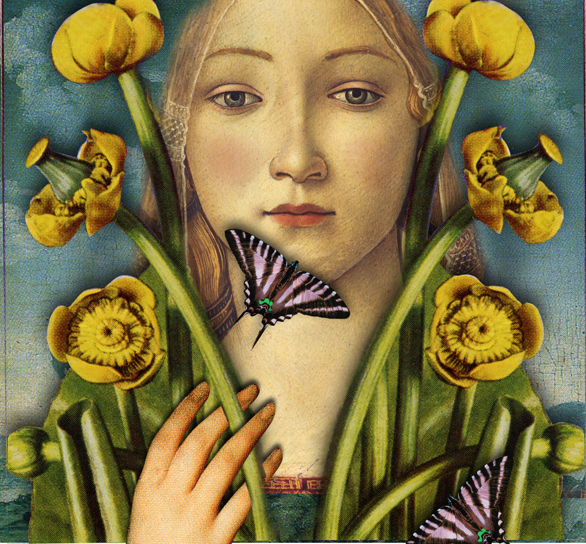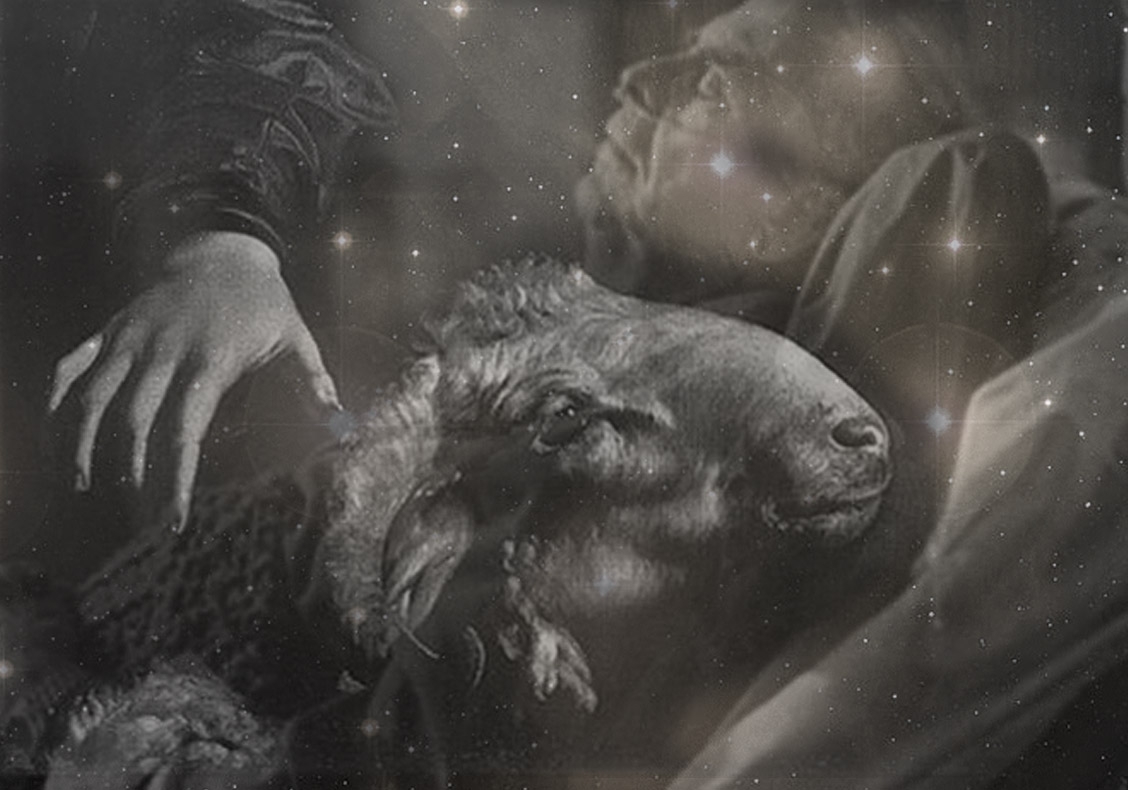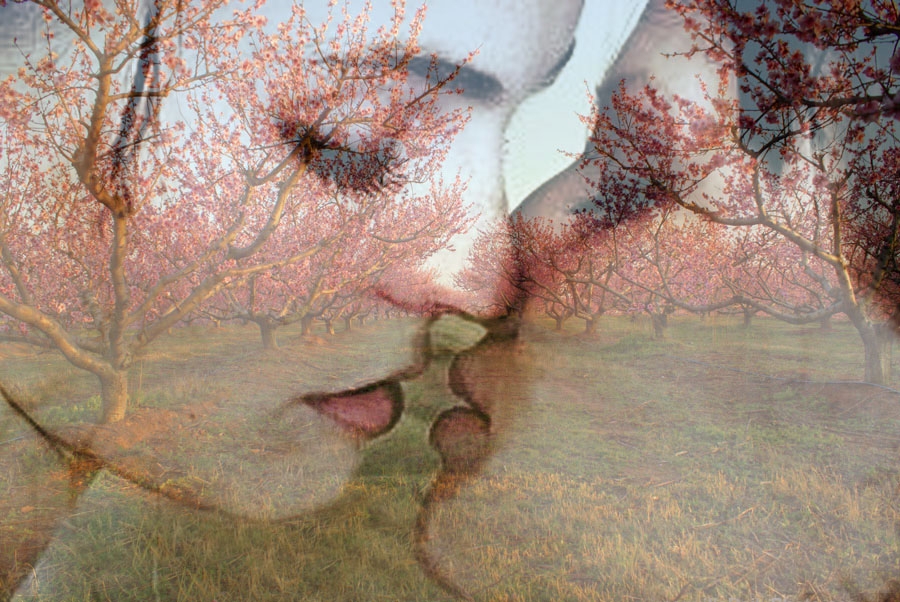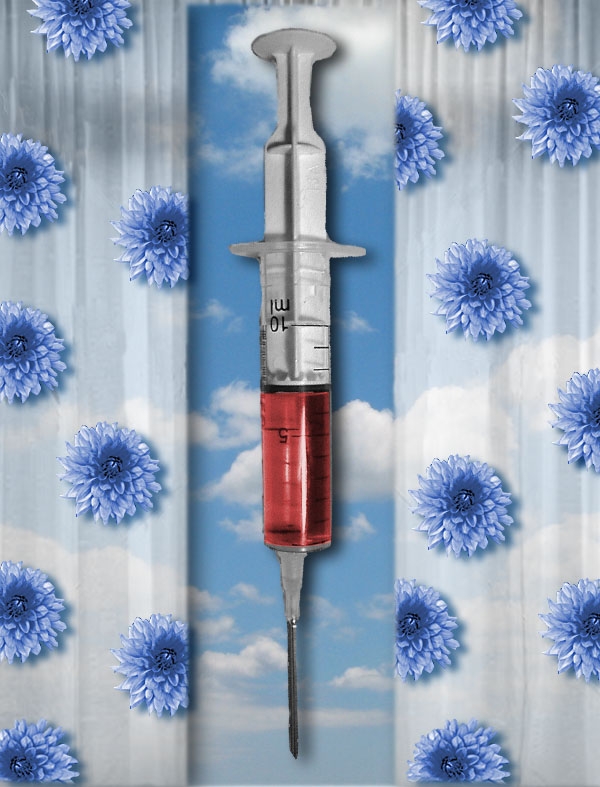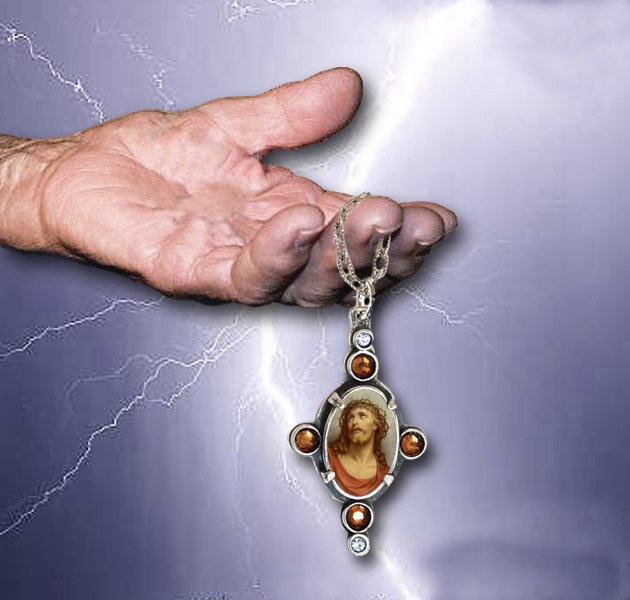
Image by Dawn Estrin
I didn’t get treatment until I hit menopause. That was thirty years ago.
I’ve had all kinds of medication, gone from monthly psychiatrist appointments to weekly therapy sessions, to daily groups at the Acute Outpatient Program, AOP they call it, for patients who are too depressed for the regular clinic but don’t need to be hospitalized.
My therapist is a nice man but today he seems tired. I’m tired too. Sick of being sick, yakking about the same problems day after day. I’m sitting by Dr. Peter’s desk, pretending I don’t see him swallowing yawns, close enough to get a whiff of his aftershave. The citrus smell reminds me of spiced lemonade, which reminds me of my mother, which starts me crying. My mother died when I was eight. Almost eighty years and here I am, bawling like a baby.
“I feel so hopeless,” I say.
“It will get better.” Dr. Peters hands me a tissue box, the extra soft kind with lotion.
I blow my nose and wipe my eyes, sigh. “Not now.”
“Betty, you can’t give up. This is temporary.”
But when I stand and maneuver into the walker, we both know it isn’t.
“Maybe I should see the psychiatrist again,” I say, reaching for straws. “I don’t think the Cymbalta’s working.”
“Dr. Reed just changed your medication.”
“I’m dizzy from it.”
Dr. Peters rubs his forehead. When he holds the door his blue shirt shows dark sweat rings under the arms.
My attendant is waiting in the hall to drive me home. “Good visit?” she asks.
I’VE ALWAYS BEEN INDEPENDENT. Until three months ago I was gardening, making cannoli for St. Basil’s, cooking for my friend Martin. I never let the depression slow me down or interfere, just soldiered on. But that accident on New Year’s did me in.
I was just back from dinner at my nephew Frank’s and even with his wife Ann so sick from chemo it was very nice. “To the New Year,” we’d toasted. “May we all be well,” Frank added, looking sad. I prayed for Ann as I drove home, grateful it wasn’t me. Female cancer’s the worst. My sister Helen had it too, awful, how she suffered.
If I hadn’t decided to take the garbage out…one minute celebrating, the next crumbled helpless on the ground. I wasn’t tipsy, though that’s the first thing Frank asked. “The wine at dinner, Auntie, your drinking, I worry.” It wasn’t an alcohol kind of thing. I’m not supposed to drink with my medicine, but I’m Sicilian. I like my wine, all my life, no harm done.
I want to blame my slippers, or the step where the wood pulled out, but don’t know. I was balancing the garbage in one hand and my keys in the other, halfway down the stairs, when I walked into nothing and landed on my left foot.
I couldn’t sit up never mind stand, sprawled on the cement in front of my house surrounded by garbage, in my plaid flannel robe. The pain was unbearable, like daggers up my leg. My ankle was swelling, turning reddish-purple. I was desperate for someone to help me.
I shivered on the ground forty minutes before my neighbor found me. “Ms. Lombardo, you gotta be more careful,” she said. “At your age…”
Mrs. Cole is black, like most of the neighborhood now. She bought the house next door, where the Lenzis lived, ten years ago.
“Don’t worry, we’ll just get you right to the hospital,” she said, calling to her teenage son to help get me in the car. I collapsed in the back of her Toyota, moaning with pain.
I was in the emergency room three hours. The doctor said I was lucky. I could’ve broken my hip instead of my ankle.
“And how are we this lovely May morning?” my attendant, Victoria, asks when she arrives. She’s wearing a yellow cotton dress that shows off her bosom. She has strapping arms and smooth, dark skin.
I nod and stare at the television.
“Going to your program?” Victoria’s South African. She wears large hoop earrings and long fake braids.
I haven’t been to AOP in two weeks, not since my psychiatrist appointment. “There’s nothing else,” Dr. Reed said. “No other medication.”
The truth is they don’t want me there. “It’s her age, intractable depression,” Dr. Reed told Dr. Peters. Like I wasn’t even in the room.
That’s okay. I’ve had enough of them anyway, enough of everyone. Martin using me for a meal ticket and Frank waiting for my money and Dr. Peters pretending to care—good-time Charlies, all of them.
I’m alone except for Victoria, who’s paid help. Who’s supposed to cook and clean, not boss me around with her British accent and superior air. If I want to hibernate and vegetate it’s my business.
Once I heard two women at AOP talking about me. “Isn’t she adorable? So sweet, I could just hug her.” My blood boiled but I didn’t say anything. I was never adorable or sweet, not even as a child, but especially after my mother died.
I’ll never forget her hanging from the beam—the bathroom smell, tongue sticking out, nightgown open, her breasts and pink panties, red toenails. I was eight years old. The church sent me to a home until my sister was old enough to take me. I lived in a dorm with twenty cots, with girls who whispered about my mother’s sin.
In her suicide letter my mother wrote she was sorry. Give Betty my Tears of Christ pendant, she wrote. I wore it until I was thirteen, when the pendant turned black on my neck.
FRANK CAME TO VISIT yesterday and was very upset. “Auntie, I’m really worried. Almost a month, not getting dressed, doing nothing all day,” he said.
“Did Victoria call you?”
“What about your program? Why did you stop?”
Lots of questions that asked nothing, but Frank kept nagging and eventually I let him call the clinic and talk to Dr. Peters, who said I should go to group the next day and after they’d have a special family meeting with Frank and me.
So here I am, back in group, kicking myself for giving in. Three months of groups with strangers who act like your best friend but don’t know you, talking about their depression and suicidal thoughts, work problems and job stress, I don’t know how I stood being here, never mind liking it and looking forward to coming.
A skin and bones blond is crying, saying she can’t eat and would rather be dead. Then a Philippines woman says she wants to die and a red-faced fat fellow says he dreams of hanging himself. It’s too much to take. They don’t know anything.
“Suicide is stupid and selfish. If you don’t care about yourself think about your families.” My voice is too loud and my face is wet from crying and my right leg, the good one, is shaking. “You don’t know,” I say, and tell them about my mother, finding her and what it did to me. “No matter how depressed I get, I’d never kill myself.”
The group leader already knew but the others are shocked and say how sorry they are, they had no idea, how brave I’ve been all these years. I barely listen, thinking of what I said, how suicide hurts the ones left behind.
When the group ends I go to Dr. Peters’ office. Frank is there, with Dr. Peters and Dr. Reed. I know they’ve been talking about me.
Dr. Peters explains we’re meeting to discuss treatment options since nothing’s worked and I seem to be getting more depressed. Frank looks troubled and I notice how old he seems, all wrinkled and bald. I’m trying to figure his age when Dr. Reed starts talking, so I miss the first things he says. I decide Frank is seventy and then notice Dr. Peters is frowning, Frank’s eye is twitching and Dr. Reed is nodding, like he’s saying something important.
“ECT is our best option,” Dr. Reed says.
“Isn’t that an outdated treatment?” Frank asks. He’s a dentist and knows a little about medicine, but not as much as he thinks.
I hear ECT but don’t know what they mean. My mind wanders, thinking here I am with three doctors and they have the advantage with their educations and I need to watch out.
“Real improvement, especially with the elderly chronically depressed who don’t respond to antidepressants,” Dr. Reed says.
“What’s ECT?” I ask.
“Electro-convulsive therapy,” Dr. Peters says.
I FEEL SO BETRAYED, so angry, so afraid. Like when my mother died but worse, because then I had my life ahead of me, and now I have nothing. My nephew and my doctors, telling me to get electroshock, like Jack Nicholson in Cuckoo’s Nest. I don’t care what the video said. They want me brain-dead, like a zombie.
“I’ll never do it,” I tell Victoria.
We’ve just watched the film about ECT, the one Frank and me saw at the clinic yesterday with Dr. Peters, that they gave me to take home. Seeing it the second time doesn’t make me feel better, being unconscious and paralyzed, then having electricity run through your brain.
“It will help you,” Victoria says. “Anyway, you won’t remember.”
“Exactly, you heard what they said about losing your memory.”
“That’s only for a short-time. I meant you won’t remember the procedure.”
“Or anything else.”
“You should listen to your doctors.”
Before she leaves for the day, Victoria serves dinner, baked chicken breast and rice, tasteless and dry. I wait until she leaves, then hobble to where I hid the grappa in my sweater drawer. It was a Christmas present from Martin, so Victoria didn’t dare get rid of it when she took my wine. “Doctor’s orders,” she’d said, like she was a nurse and not a glorified housekeeper. I’m sick of Victoria, and if it wasn’t for my hands shaking so much and the weakness I could do for myself, even with the walker. I’d like to try anyhow but whenever I bring it up Frank says no, like he has the right to control my life.
The grappa tastes better than I remember, warming my bones and easing my fears. I’m sipping from the bottle, lying in bed, when I remember the group that afternoon, when everyone was talking about suicide.
For the first time I think about doing it. No hanging, I don’t have the strength. No knives. But I have lots of pills and they’re in the medicine chest and it’d be so easy. But if I killed myself would Father still do the Mass and could I be buried in my plot from church? I didn’t go to my mother’s funeral, but she’s buried in a Catholic cemetery.
I’ve never had much sympathy for my mother. I blamed her for leaving me. For not caring what would happen to me. When I was younger I wondered what my life would’ve been like if she’d lived.
My sister was seventeen when my mother died. Helen was able to finish high school, live with a girlfriend’s family. She never had to stay in an orphanage, with the nuns and the unwanted unloved children. Helen was never depressed, like my mother and me.
I don’t know if losing my mother made me depressed, or if I inherited the gene. Maybe both, from what I’ve learned in AOP. I look like my mother, short and slim, brunette until I went gray.
Because I could’ve married and didn’t people called me feisty, a firecracker, a pistol. I didn’t start therapy until my fifties; by the time I learned I was afraid of getting hurt it was too late. My time had come and gone. Still I had my moments, my gentlemen friends and flings. I have no regrets.
Besides, my sister married and what did it get her? A lazy husband who barely helped with the deli, left the work to the two of us, but still we made money. They sent Frank off to school. I bought my house. Then Helen got cancer in her ovaries. It took two years of misery before she died.
Frank’s the only one left and now his wife is dying and their daughter is in New York, so they never see her. If I’d married I would probably be a widow by now. Maybe I’d have children, but they grow up and grow away. At my age I’d be alone, no matter what, all the old white-haired ladies, going to church and having lunch, with their TVs and mementos, relics to the rest of the world, waiting to die.
I don’t know what to do. My doctors are right. The depression is getting worse, taking me over. I can’t go on like this.
After weeks of agony, Ann has mercifully died. I should’ve seen her at the hospice, but I’ve been in bed myself. The weakness and shaking and I couldn’t eat or do anything and poor Frank, having to worry about me, at a time like this. I feel so guilty.
I can’t believe June is half over. I can’t believe Ann is gone.
It’s Tuesday, when Victoria is here, so she’s taking me to Mass and the burial. She’s dressed for church, in a navy blue outfit I’ve never seen with a matching scarf over her braids. She says she goes to Mass every Sunday.
I guess we’ve reached an understanding, Victoria and me, or maybe we’re just used to each other. “I’ve got your clothes ready,” she says, patting my hand.
Getting dressed is a struggle. When I’m done and look in the mirror I feel awful. My good black dress that used to be fitted hangs like a sack. “You’ve lost too much weight,” Victoria says, shaking her head. She puts on my shoes because I can’t reach down without getting dizzy. Finally I’m ready to go.
“Thanks for the help,” I say.
“I have something for you,” she says, reaching in her bag.
She hands me a gray velvet box and helps me open it. Inside is the Tears of Christ pendant, polished silver, the tarnish gone. “I found it under your night-stand. I hope you don’t mind. The jeweler put a coat on, so it won’t turn black again.”
I hold the pendant in my hand and remember how it looked on my mother with her holiday suit, how pretty she was and how happy she seemed. When Victoria puts the pendant around my neck, I start to cry. “From joy,” I say to her.
Somehow I get through Mass, not at St. Basil’s, but the new church Frank goes to. Even with our family pitifully small, just Frank and me, his daughter and her twin boys, there are lots of people. Ann’s sister from New York and her cousin from San Diego, Frank’s dentist friends, women from Ann’s book and quilting clubs.
It’s harder at the burial. I always hate that the most, the final descent, the weeping and solemn prayers. I keep touching the pendant, trying to find comfort. Some people would say Ann had a full life, even dying in her mid-sixties, family and friends, her faith, her volunteer work and hobbies. I don’t know though, I keep looking at Frank choking his tears, his daughter weeping, her sons, the generations left behind and nothing seems to really mean anything.
My funeral will be small. Just Frank and his daughter, people from St. Basil’s, Martin, maybe Victoria will come. People will say she’s had a long life but no one will remember me when I was young. I’ve outlived family and friends. My generation is almost gone.
I’m picturing my burial, the casket I’ve already picked, the flowers, when I realize I don’t want to spend my final days waiting to die. I’ve always been a fighter, all the people in AOP said I was, being in treatment at my age.
Before Victoria leaves for the day I thank her for everything. “I was on the pity wagon,” I explain. Then I tell her I’ve decided to have ECT.
“OKAY BETTY,” a nurse says. “I’ll just find a vein here and put the tube in. You won’t feel anything with the medication.”
I’m in the ECT room. It’s been two weeks since Ann’s funeral. Frank brought me to the hospital a few hours ago and stayed with me while I signed the insurance papers and consents. “I’ll be waiting outside Auntie,” he told me. “The procedure is only fifteen minutes or so, over before you know it.”
The blood pressure cuff on my arm keeps inflating, the heart monitor is beeping, I smell chemicals and plastic. I try to take everything in, to remember, the bright overhead lights, the coldness of the pads on my head where the current will go. I imagine electricity pouring through me and panic. I don’t know if I’ll be the same person, with my wits and my memory. I don’t know…
I think of the things I want to remember, my mother happy, Helen’s wedding, my first lover, the deli, Martin, Victoria, the people from AOP. What makes up a life, gives it meaning. I see my mother’s body, hanging from the beam, how could she, I’ll never understand, a young widow with two daughters. I know people look at me and see a cute little old lady, white-haired, dressed in pastels, my true self hidden away. Will anyone remember me, will I remember myself?
There’s a red electric smell, scorching lights. Victoria is with me, patting my hand. The ice cream grappa she gives me tickles my brain and makes me laugh. When it’s done I want more.
Myra Sherman lives in Northern California. She was a finalist in the 2006 SLS-Kenya Fiction Contest and the 2006 Moment-Karma Short Fiction Award. An excerpt from her recently completed novel was a finalist in Glimmer Train’s Best Start 50 List for June 2009. Her fiction and essays have appeared in numerous literary journals including Ars Medica, 580 Split, Fifth Wednesday Journal, Thuglit, Mobius, Zygote In My Coffee, Storyglossia and Skive. She has fiction upcoming in Another Sky Press Horror Anthology, Inkspill Magazine, The Medulla Review and Kerouac’s Dog.
